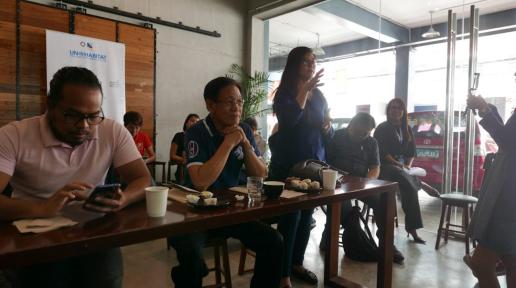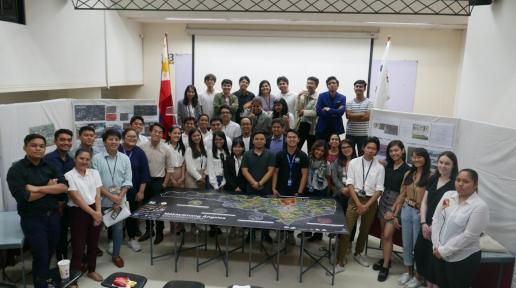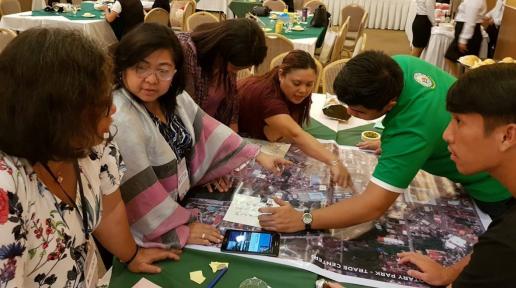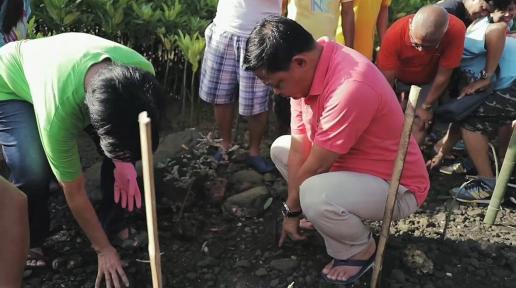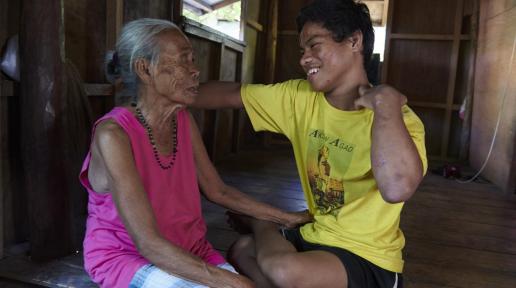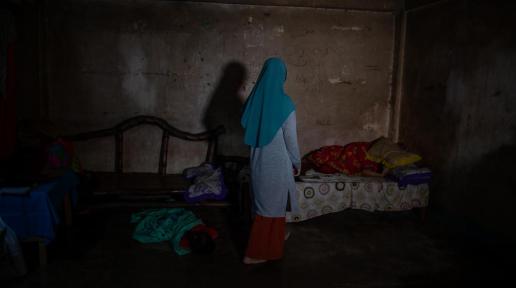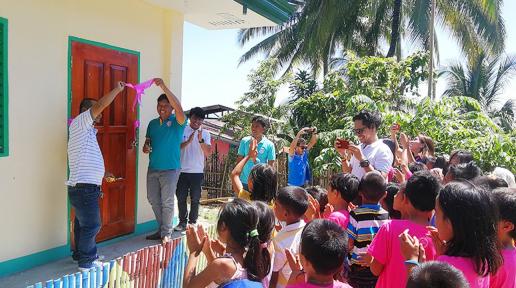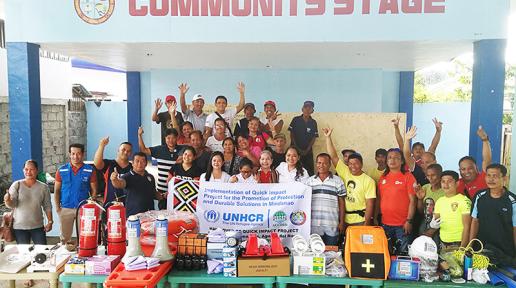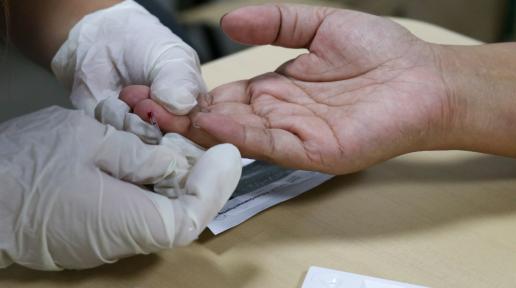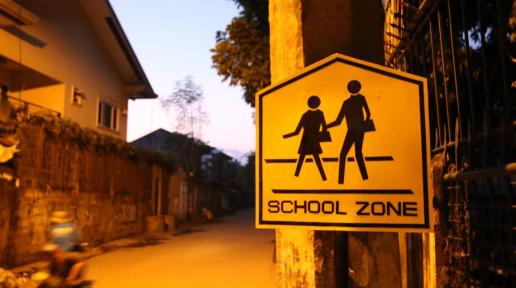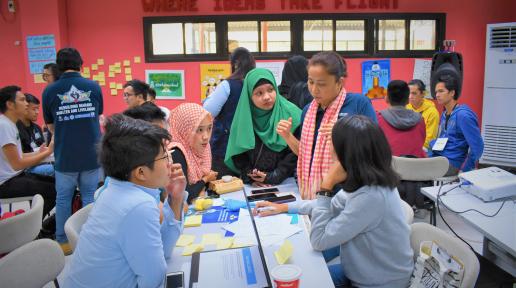Story
18 November 2025
Breaking barriers, saving lives: how UNAIDS has helped drafting Philippines’ landmark HIV laws
"At 17, Krang Martir stood in a clinic, alone and scared. He had decided to get tested for HIV after suspecting he may have been exposed when a trusted friend abused and raped him. But he hit a wall: the law at the time did not allow minors to access HIV services without parental consent – and he did not feel comfortable disclosing details to his parents. At that moment, even as he tried to take control of his health, the law made him wait. That wait could have cost him everything. Thankfully, a clinic worker who empathized with him helped him get tested, which opened the door to treatment. Today, young people in Krang’s situation no longer face that same barrier. In 2018, the Philippines passed a landmark HIV law - Republic Act 11166 - allowing people as young as 15 to access HIV testing and treatment without parental consent. The law didn’t just change policy. It saved lives. And it opened the door for a more inclusive, compassionate HIV response. “Through RA 11166, we didn’t just protect all Filipinos, from womb to tomb, against the threat of HIV, we also provided support to the children, families, partners, and support groups of people living with HIV”, said Elena Felix, co-founder of the Association of Positive Women Advocates, Inc.
For more than a decade leading up to the law’s passage, UNAIDS worked alongside communities, government agencies, and civil society organizations to make this possible. Behind the scenes, it brought in global guidance, supported consultations, helped build consensus across sectors, and ensured that those most affected were leading the conversation.
“This wasn’t a one-year push,” said Bai Bagasao, UNAIDS Philippines Country Director from 2008 to 2016. “It took over a decade of advocacy, technical inputs, and persistent work with civil society, lawmakers, and health officials.”
The story of RA 11166 begins long before its enactment. In 1998, the Philippine AIDS Prevention and Control Act, also known as RA 8504, became the country’s first comprehensive legal response to HIV – also developed with support from UNAIDS. At the time, it was a progressive step to strengthen public awareness, establish the Philippines National AIDS Council, and enshrine into law protections for people living with HIV.
Geoffrey Manthey, the first UNAIDS Country Director in the Philippines, was directly involved in the advocacy for RA 8504. “Back then, passing the law was about breaking the silence,” he recalled. “We needed a framework that recognized HIV as a public health and human rights issue, not just a medical one. It was about protecting people who were most at risk, even when talking about HIV was still taboo.”
But as the years passed, the epidemic evolved. The virus began to spread rapidly among young Filipinos, especially among young men who have sex with men. Yet legal restrictions kept them from getting timely help.
Gerard Belimac, who once led the Department of Health’s National HIV and AIDS Program, remembers those years as a race against time. “We saw the numbers rising, especially among youth, but the law had not caught up. It didn’t reflect the realities on the ground,” he said. Many young people, afraid of rejection or not ready to talk to their families, avoided testing altogether. The result was late diagnosis, missed treatment, and sometimes lives lost.
RA 11166 was signed into law in December 2018. It did more than address the consent issue. The law streamlined testing and treatment procedures, embedded HIV education into schools, and updated national guidelines to reflect the latest global standards. It also strengthened the approach to view HIV not just as a medical condition, but also as a rights issue.
That shift continues today. In 2022 and 2023 alone, UNAIDS and its UN partners supported wide-reaching reforms. PrEP - a preventive medication - was added to the national drug formulary, enabling procurement through government channels. Over 50,000 people from key populations accessed it. PhilHealth, the national insurance provider, raised its HIV treatment reimbursement rates by 95%. And testing and treatment are expanding into new spaces, with faster turnaround times and better community-based systems.
“Laws don’t change things overnight,” said Louie Ocampo, UNAIDS Philippines Country Director. “But they create space. They legitimize what people have already been doing on the ground - and that makes a huge difference.”
Ms. Felix sees the law as a symbol of how far the country has come - and how far it still has to go. “This law gave us space to be heard,” she said. “To be seen not just as patients, but as advocates.”
It’s a perspective echoed by Malou Quintos, UNAIDS Philippines’ Community-Led Responses Adviser. “We’ve moved from fear to hope. But the most powerful shift has been that people living with HIV are now leading the conversation.”
For Krang, now 26, the transformation is personal. He now speaks publicly about his experience and works to support young people who feel lost like he once did. “I wish I had this kind of law back then,” he said. “But I’m grateful it’s here now.”
Despite major successes, the work continues. Stigma remains. Many Filipinos still face barriers to care. But the path is clearer now - and more inclusive. With the United Nations celebrating 80 years of global service, the Philippines HIV response offers a striking example of how international cooperation and partnership, grounded in local realities, can deliver long-term results.
As Krang put it, “This law doesn’t just protect us, it tells us we matter. And that’s something no one can take away.”
For more than a decade leading up to the law’s passage, UNAIDS worked alongside communities, government agencies, and civil society organizations to make this possible. Behind the scenes, it brought in global guidance, supported consultations, helped build consensus across sectors, and ensured that those most affected were leading the conversation.
“This wasn’t a one-year push,” said Bai Bagasao, UNAIDS Philippines Country Director from 2008 to 2016. “It took over a decade of advocacy, technical inputs, and persistent work with civil society, lawmakers, and health officials.”
The story of RA 11166 begins long before its enactment. In 1998, the Philippine AIDS Prevention and Control Act, also known as RA 8504, became the country’s first comprehensive legal response to HIV – also developed with support from UNAIDS. At the time, it was a progressive step to strengthen public awareness, establish the Philippines National AIDS Council, and enshrine into law protections for people living with HIV.
Geoffrey Manthey, the first UNAIDS Country Director in the Philippines, was directly involved in the advocacy for RA 8504. “Back then, passing the law was about breaking the silence,” he recalled. “We needed a framework that recognized HIV as a public health and human rights issue, not just a medical one. It was about protecting people who were most at risk, even when talking about HIV was still taboo.”
But as the years passed, the epidemic evolved. The virus began to spread rapidly among young Filipinos, especially among young men who have sex with men. Yet legal restrictions kept them from getting timely help.
Gerard Belimac, who once led the Department of Health’s National HIV and AIDS Program, remembers those years as a race against time. “We saw the numbers rising, especially among youth, but the law had not caught up. It didn’t reflect the realities on the ground,” he said. Many young people, afraid of rejection or not ready to talk to their families, avoided testing altogether. The result was late diagnosis, missed treatment, and sometimes lives lost.
RA 11166 was signed into law in December 2018. It did more than address the consent issue. The law streamlined testing and treatment procedures, embedded HIV education into schools, and updated national guidelines to reflect the latest global standards. It also strengthened the approach to view HIV not just as a medical condition, but also as a rights issue.
That shift continues today. In 2022 and 2023 alone, UNAIDS and its UN partners supported wide-reaching reforms. PrEP - a preventive medication - was added to the national drug formulary, enabling procurement through government channels. Over 50,000 people from key populations accessed it. PhilHealth, the national insurance provider, raised its HIV treatment reimbursement rates by 95%. And testing and treatment are expanding into new spaces, with faster turnaround times and better community-based systems.
“Laws don’t change things overnight,” said Louie Ocampo, UNAIDS Philippines Country Director. “But they create space. They legitimize what people have already been doing on the ground - and that makes a huge difference.”
Ms. Felix sees the law as a symbol of how far the country has come - and how far it still has to go. “This law gave us space to be heard,” she said. “To be seen not just as patients, but as advocates.”
It’s a perspective echoed by Malou Quintos, UNAIDS Philippines’ Community-Led Responses Adviser. “We’ve moved from fear to hope. But the most powerful shift has been that people living with HIV are now leading the conversation.”
For Krang, now 26, the transformation is personal. He now speaks publicly about his experience and works to support young people who feel lost like he once did. “I wish I had this kind of law back then,” he said. “But I’m grateful it’s here now.”
Despite major successes, the work continues. Stigma remains. Many Filipinos still face barriers to care. But the path is clearer now - and more inclusive. With the United Nations celebrating 80 years of global service, the Philippines HIV response offers a striking example of how international cooperation and partnership, grounded in local realities, can deliver long-term results.
As Krang put it, “This law doesn’t just protect us, it tells us we matter. And that’s something no one can take away.”


